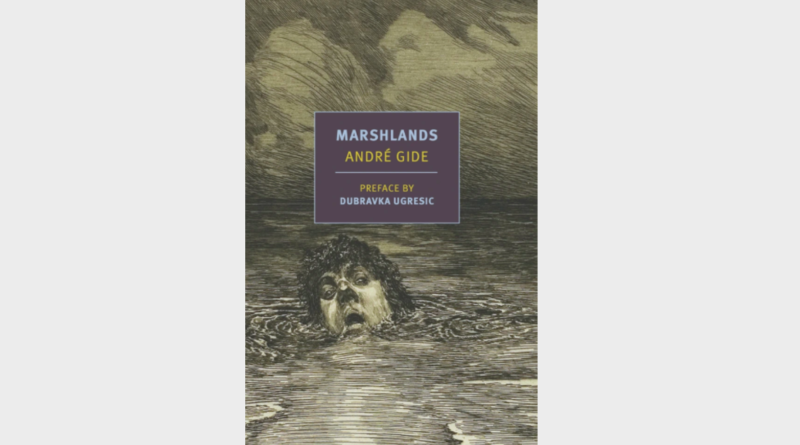REVIEW: New from NYRB Classics: ‘Marshlands’ by André Gide
Image courtesy of NYRB / Provided by official site.
André Gide’s unusually (and unusually transfixing) short novel Marshlands is a work of metafiction that can be read in one sitting but still lingers for quite some time. The classic text has recently be re-released by New York Review Books, with a new translation by Damion Searls and a preface by Dubravka Ugresic.
This late-19th century work follows a protagonist who is struggling to write a novel called, fittingly, Marshlands. He tries out some of his prose on the elite crowds he keeps company with, and their questions and disapprovals drive him into further bouts of insecurity and anxiety. The narrator offers commentary on these social interactions in spurts of quick dialogue and ruminations on literature, life and society.
As the first page of the “Hubert” chapter makes clear, Gide uses an economy of words to tell his tale and carve out his main subject. When the narrator says he’s hard at work on writing Marshlands, Hubert simply asks, “What’s that?” The response is even simpler: “A book.” Hubert then replies with another prosecutorial question: “Will I like it?” The answer is somehow simpler yet: “No.”
That’s a bold move to begin a book called Marshlands with essentially a precluding negative review of a similar work of fiction called Marshlands, but readers should not put down this slender tome. There are wonders to behold within these pages as Gide works through various social settings, placing the narrator in the middle of a literary circle that has interesting, revealing viewpoints on culture and class, friendship and legacy.
As with any work of metafiction there’s an inherent commentary within these pages about literature itself. Gide expands this mirror-raising to include thoughts on acceptance in culture and how works of prose are shaped in their infancy not so much by artistic merit but by pangs of societal rejection. There is, Gide’s thesis portends, a fear that is embodied in putting thoughts into words and sharing those with other people, some of whom are a writer’s harshest critics. This act of memorialization of internalization is a scary prospect for the narrator and seems to disrupt any literary acumen he may hold.
The work is accessible because of its short length, but it does prove to be a head-scratcher. Some of the tangential asides by the narrator can be frustrating, although perhaps that’s the point. He finds every reason to worry, every reason to put off completion of Marshlands, even as the real Marshlands journeys toward an inevitable conclusion.
Apparently, Gide was not a fan of this work and likened it to a carnival exercise in street-fair farce, as Ugresic explains in the preface. But perhaps that self-criticism is to be expected from an author who so intelligently and effectively put down words that brilliantly expose the dangers and possibilities of … self-criticism.
By John Soltes / Publisher / John@HollywoodSoapbox.com
Marshlands by André Gide. Translated from the French by Damion Searls. Preface by Dubravka Ugresic. New York Review Books Classics. 144 pages. Click here for more information.

